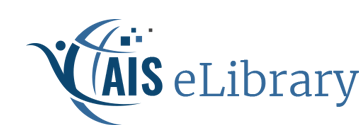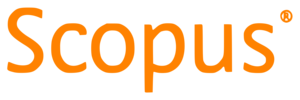International Journal of Information Systems and Project Management
Archive (downloads) Current issueQuick links (submissions):
Review & publication processGuidelines for submissions
Article template (MS Word)
Submit an article
Frequently Asked Questions:
The IJISPM is Open Access (OA).
The IJISPM has no publication costs (A.P.C.).
Articles not correctly formated are desk rejected.
10/2024
The latest issue is out now
New The articles of the latest issue are already available for download. In this issue, readers will find important contributions on project management skills and learning methods, digital carbon footprint, risk management and management of changes in projects
9/2024
A new template is available for download
New A new template is available for download. After volume 12, all the articles will be based on this template.
01/2024
IJISPM's acceptance rate
The journal's acceptance rate for 2023 was 7%. Unfortunately, many submitted papers are desk rejected. So, we kindly ask the author/s to carefully review their articles before submission and strictly follow the journal's guidelines.

- Soft skills and learning methods for 21st-century project management: a review
Jason Kearney, University of Pretoria, South Africa
Taryn Bond-Barnard, Stellenbosch University, South Africa
Ritesh Chugh, Central Queensland University, Australia- This article addresses a prominent gap in the literature by investigating the crucial soft skills required by project management students, graduates, and new practitioners entering the contemporary workforce. The literature review study adopts a concept-centric approach to examine the essential soft skills and effective learning methods for new project managers in the 21st century. Five essential 21st-century project management soft skills (communication, leadership, interpersonal, teamwork and emotional intelligence) were identified, along with three learning methods (experiential, active and reflective) that can be used to develop them. The implications of this research extend to project management students, graduates, and educators alike, emphasising the importance of nurturing the identified soft skills. As the project management domain evolves, the findings highlight the need for an education that prioritises hands-on learning and reflective practices, enabling emerging project managers to excel in their roles and drive project success.
- Small business, big footprint: the digital carbon footprint dilemma in small and medium-sized enterprises
Ágnes Sándor, Budapest Business University, Hungary
Ákos Gubán, Budapest Business University, Hungary- A major contributor to climate change is the emissions from Information and Communication Technology (ICT) devices and digitalisation. Energy use, heat production, and the operation of assets all contribute to the production of harmful emissions. However, indirect emissions, such as production and disposal, also play a role. We rely mainly on the output of small and medium-sized enterprises (SMEs). This paper focuses on the emissions of SMEs. Is it certain that cloud services (remote data storage and management) leave a much smaller carbon footprint than ICT devices for own use? These two solutions lead to a paradox: using more modern devices to produce less emissions requires more energy and generates more heat. This article analyses how to resolve this paradox for SMEs.
- The need for a risk management framework for data science projects: a systematic literature review
Sucheta Lahiri, School of Information Studies, Syracuse University, USA
Jeff Saltz, School of Information Studies, Syracuse University, USA- Many data science endeavors encounter failure, surfacing at any project phase. Even after successful deployments, data science projects grapple with ethical dilemmas, such as bias and discrimination. Current project management methodologies prioritize efficiency and cost savings over risk management. The methodologies largely overlook the diverse risks of sociotechnical systems and risk articulation inherent in data science lifecycles. Conversely, while the established risk management framework (RMF) by NIST and McKinsey aims to manage AI risks, there is a heavy reliance on normative definitions of risk, neglecting the multifaceted subjectivities of data science project failures. This paper reports on a systematic literature review that identifies three main themes: Big Data Execution Issues, Demand for a Risk Management Framework tailored for Large-Scale Data Science Projects, and the need for a General Risk Management Framework for all Data Science Endeavors. Another overarching focus is on how risk is articulated by the institution and the practitioners. The paper discusses a novel and adaptive data science risk management framework – “DS EthiCo RMF” – which merges project management, ethics, and risk management for diverse data science projects into one holistic framework. This agile risk management framework DS EthiCo RMF can bridge the current divide between normative risk standards and the multitude of data science requirements, offering a human-centric method to navigate the intertwined sociotechnical risks of failure in data science projects.
- Project Change Canvas
Raquel Ferreira, MIEGSI, University of Minho, Portugal
João Varajão, ALGORITMI/LASI, University of Minho, Portugal
Luís Silva Rodrigues, CEOS.PP, ISCAP, Polytechnic University of Porto, Portugal
Rui Dinis Sousa, ALGORITMI/LASI, University of Minho, Portugal- Project management plays a critical role in boosting the success of organizations' projects. However, no matter how well a project is managed, changes are inevitable during its execution. It is crucial to evaluate the impact of these changes before implementing them to ensure they do not compromise the project's success. Existing techniques for assessing the effects of changes have several limitations—particularly in their failure to account for how changes might affect various aspects of project management, such as scope, cost, time, resources, communication, risk, procurement, or overall success. To overcome this limitation, this article introduces a new technique – Project Change Canvas – that enables the systematic assessment of changes in information systems and technology projects by identifying and weighing their potential impacts across all relevant project management knowledge areas.
Current issue








